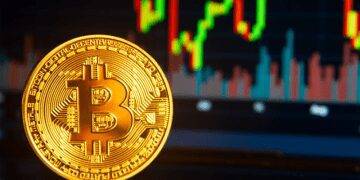Germany has experienced a slight rebound in inflation for the first time this year, reaching 2.2% in August 2025. This level once again exceeds the symbolic 2% target set by the European Central Bank (ECB) to maintain price stability. Economists predict that inflation may temporarily stabilize at this level as households continue to feel the impact of rising costs in their daily purchases US Escalates Economic Pressure.
Consumers in Germany are particularly noticing price increases for everyday items such as coffee, chocolate, and fresh fruits, putting additional pressure on household budgets. According to data released by the Federal Statistical Office in Wiesbaden, prices rose by 0.1% from July to August 2025.
Direct Impact on Consumer Behavior
A recent survey conducted by YouGov for the German news agency revealed that rising food prices have forced many Germans to rethink their shopping habits. About 57% of respondents reported changing their purchasing behavior due to higher prices, with nearly half turning to discount stores instead of traditional supermarkets Trade Talks Between Canada and Mexico.
Economists also note that the core inflation rate—which excludes volatile items such as food and energy—has remained steady at 2.7% for the past three months, indicating that price pressures persist across the German economy.
Inflationary Pressures Rooted in Global Crises
Germany has faced growing inflationary pressures in recent years, largely stemming from a series of global crises. The Russian war against Ukraine, which began in 2022, caused a sharp increase in energy and grain prices, directly affecting production costs and retail prices throughout Europe China-U.S. Diplomatic Exchanges.
Although the severe wave of inflation subsided somewhat over the past two years, food prices remain a key challenge. Households continue to navigate higher grocery bills, and the pressure is most acutely felt among retirees and low-income families. Data shows that approximately 42% of German pensioners live on less than €1,000 per month, highlighting the vulnerability of many citizens to price fluctuations Qatar Strengthens Sovereignty.
ECB Targets and Economic Implications
The ECB sets a 2% annual inflation target as a benchmark for price stability. Although Germany’s inflation levels have fallen from the peaks of 2022–2023, which occasionally exceeded 8%, the recent rise above 2% raises concerns about persistent price pressures Elon Musk Restructures XAI.
Higher inflation erodes consumers’ purchasing power, meaning that the average German household can buy less with a single euro compared to previous years. This reduction in spending can dampen domestic consumption, which is a major pillar of Germany’s economic growth.
Policy Debate Among Decision-Makers
The renewed inflationary pressures have sparked debate among monetary policymakers. Some experts advocate for gradually easing monetary policy to support slowing economic growth, while others warn that rapid interest rate cuts could reignite inflation, especially amid ongoing geopolitical tensions and global supply chain disruptions Charlie Kirk Assassination.
ECB officials in Frankfurt emphasize the need to balance protecting citizens’ purchasing power with maintaining macroeconomic stability. Rising food costs continue to present a significant challenge, requiring careful coordination between fiscal and monetary authorities.
Looking Ahead: Challenges for Berlin and Frankfurt
As Germany navigates these inflationary pressures, the central question remains how to maintain economic stability while safeguarding households from the negative effects of rising prices. Policymakers must consider both immediate consumer relief measures and long-term strategies to strengthen the resilience of the economy Trade Talks Between Canada and Mexico.
Experts suggest that the focus should include diversifying energy sources, investing in renewable alternatives, and improving efficiency in food production and supply chains. Only through a comprehensive approach can Germany maintain stability while mitigating the social and economic impacts of inflation.
Summary
Germany’s inflation rate has risen above 2% again, driven mainly by escalating food prices. Consumers are adjusting their shopping habits, turning to discount stores, and carefully monitoring household budgets. The ECB’s 2% target continues to guide monetary policy, but ongoing global pressures highlight the fragility of economic stability. Policymakers face the dual challenge of protecting purchasing power while ensuring the broader economy remains resilient.
This article is for entertainment purposes, but knowledge is with God.
US Escalates Economic Pressure → https://qmgnews.com/us-escalates-economic-pressure-on-russia-as-trump-loses-patience/
Trade Talks Between Canada and Mexico → https://qmgnews.com/trade-talks-between-canada-and-mexico-aim-to-counter-trumps-economic-pressure/
China-U.S. Diplomatic Exchanges → https://qmgnews.com/china-u-s-diplomatic-exchanges-intensify-potential-trump-xi-meeting/
Qatar Strengthens Sovereignty → https://qmgnews.com/qatar-strengthens-sovereignty-and-peace-efforts-amid-regional-tensions/
Elon Musk Restructures XAI → https://qmgnews.com/elon-musk-restructures-xai-lays-off-500-employees-to-focus-on-specialized-ai-training/
Charlie Kirk Assassination → https://qmgnews.com/charlie-kirk-assassination-shakes-u-s-political-landscape-trump-mourns-martyr/













